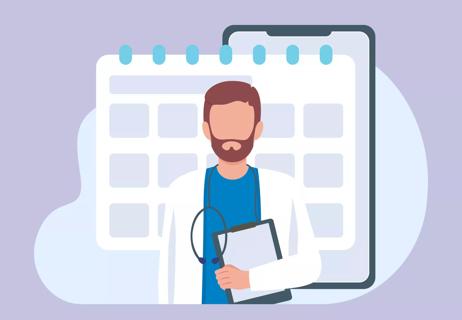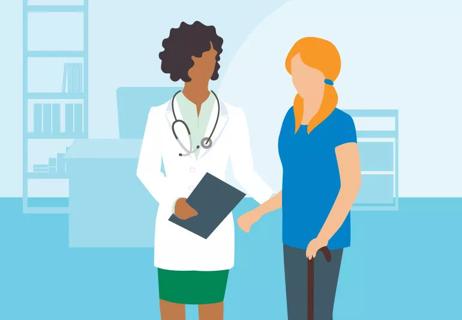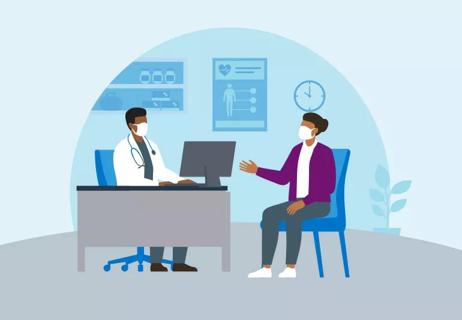How to get the most out of your appointment

Coming to your appointment prepared with questions and lists of important information can mean a much more productive experience for you and your cardiologist. It can even mean a better health outcome.
Advertisement
Cleveland Clinic is a non-profit academic medical center. Advertising on our site helps support our mission. We do not endorse non-Cleveland Clinic products or services. Policy
“Think of your care as a partnership in which you should feel comfortable and take an active role,” advises cardiologist Maan Fares, MD. “Be prepared with questions when you meet with them.”
Visiting a cardiologist can be stressful, especially when an individual is concerned about their health and unsure about their future. It may feel like things are out of your control, but there are some proactive steps you can take to prepare for and ensure the success of your appointment:
Advertisement
The following questions may be helpful to have in your back pocket for these common appointment situations.
If you need any tests:
If you are given a diagnosis:
If a treatment is suggested:
If a medication is recommended:
Before you leave your physician’s office, find out how often and when you will need to follow up with your doctor. Also be sure to ask what number to call if you have questions once you get home. It is perfectly acceptable and recommended that you call if questions or new issues arise.
Your doctor, the medical team and you are all partners in your care. To achieve the best outcomes, each participant needs to understand the treatment plan, follow the plan and communicate. If any questions come up, the treatments are not helping or you experience side effects, consult your care team. Not all people respond the same to a particular treatment – sometimes a care plan may need to be adjusted to reach your goals.
Advertisement
Learn more about our editorial process.
Advertisement

Signs are what your provider can see, but symptoms are what you feel or experience

Screenings and tests done during a wellness check can uncover hidden health issues

An annual physical exam is important for many reasons, including your chance to ask questions

From odors to colors, it’s more than OK to ask your doctor these questions

This iconic medical tool has an enduring role

Simple tips to make your visit more effective

It can offer you peace of mind and more information

Tips to help you get the most from your visit

The best parenting style balances enforcing rules and showing plenty of love

Tips include cutting back on sugar, focusing on exercise and managing stress

It can be harder to let go when you’ve invested time, energy and emotions — but it might be the healthier choice long term